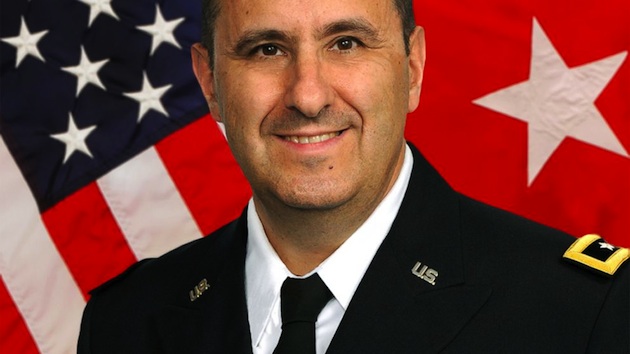

Major General Harold J. Greene, who was serving on his first deployment, became the highest-ranking U.S. military officer killed in combat since 1970.
Major General Harold J. Greene, who was serving in Afghanistan on his first deployment to a war zone, became the highest-ranking U.S. military officer killed in combat since 1970. U.S. officials identified the general killed in Afghanistan on Tuesday as Greene, a 34-year career officer of the U.S. Army and native of upstate New York.
An Army-trained Engineer, Major General Harold Greene was the deputy commanding general of the Combine Security Transition Command-Afghanistan, charged with preparing Afghan forces a U.S.-coalition troop withdrawal at the end of this year. Pentagon spokesman Rear Adm. John Kirby said earlier Tuesday that the Afghan security soldier fired into a group of international soldiers at the Marshal Fahim National Defense University at Camp Qargha, a base west of Kabul, and was killed.
Another 15 people, half of which were Americans, were wounded during the attack. Also, a German brigadier general, two Afghan generals and an Afghan officer, whose rank the Afghan Defense Ministry did not provide, were all injured.
The Army’s top soldier, Gen. Ray Odierno, issued a statement Tuesday evening. “Our thoughts and prayers are with Maj. Gen. Harold J. Greene’s family, and the families of our soldiers who were injured today in the tragic events that took place in Afghanistan,” Gen. Odierno said. “These soldiers were professionals, committed to the mission. It is their service and sacrifice that define us as an Army.”
During his 34-year long career, Maj. Gen. Greene was awarded the Legion of Merit, the Distinguished Service Medal, a Meritorious Service Award and an Army Commendation Medal.
“Our priority right now is to take care of the families, ensuring they have all the resources they need during this critical time,” Odierno’s statement said.
White House spokesman Josh Earnest said yesterday in a press conference that the U.S.-Afghan operation was making progress, despite the rash of “insider attacks” only slightly decreasing.
In 2013, there were 16 deaths in 10 attacks, while in 2012, 53 coalition troops were killed in 38 different attacks. Lt. Colonel Tony Shaffer, a retired Army Special Forces commander, said the U.S. is far from making progress in Afghanistan.
“As we are moving out, Al Qaeda is moving in right behind us,” Shaffer said. “They are cooperating with the Taliban again.”
Lt. Colonel Tony Shaffer, among many others, fear a U.S. withdrawal absent a large enough residual forces will result in a pre-9/11 condition in Afghanistan. In other words, the nearly 12-year long war would have been for nothing.
“We remain committed to our mission in Afghanistan and will continue to work with our Afghan partners to ensure the safety and security of all coalition soldiers and civilians,” Gen. Odierno said.







